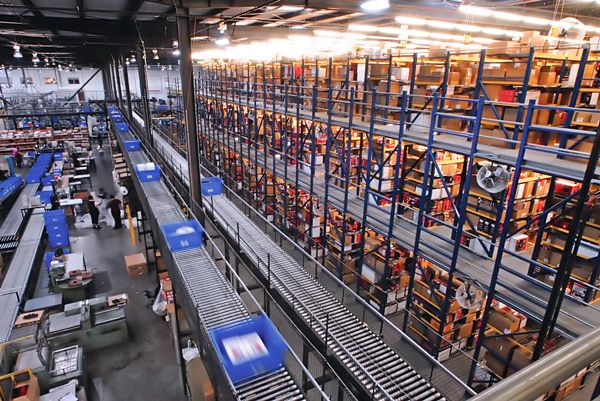Sustainability in the Supply Chain: Why It Matters
In recent years, the concept of sustainability has become increasingly important in the tech industry. Companies are realizing the impact of their supply chains on the environment and society, and are taking steps to improve their practices. From reducing carbon emissions to ensuring ethical labor practices, sustainability is becoming a top priority for tech companies around the world.
Environmental Impact
One of the key reasons why sustainability in the supply chain matters is its impact on the environment. The tech industry is known for its large carbon footprint, with the production and transportation of electronics contributing to greenhouse gas emissions. By implementing sustainable practices in their supply chain, companies can reduce their environmental impact and work towards a greener future.
Reducing Carbon Emissions
One way tech companies are addressing their carbon footprint is by focusing on renewable energy sources. By using solar or wind power to run their manufacturing facilities and data centers, companies can significantly reduce their emissions and lower their overall environmental impact. Additionally, many companies are investing in electric vehicles for transportation, further reducing their carbon footprint.
Sustainable Packaging
Another area where tech companies are prioritizing sustainability is in their packaging practices. By using recyclable materials and minimizing packaging waste, companies can reduce the amount of plastic ending up in landfills and oceans. Additionally, some companies are exploring innovative packaging solutions, such as mushroom-based packaging, which is biodegradable and eco-friendly.
Social Responsibility
In addition to the environmental impact, sustainability in the supply chain also plays a crucial role in promoting social responsibility. Many tech companies are facing scrutiny for their labor practices, including working conditions and wage fairness. By ensuring ethical practices in their supply chain, companies can protect workers’ rights and promote social justice.
Responsible Sourcing
One way companies are promoting social responsibility in their supply chain is by sourcing materials ethically. This includes ensuring that raw materials are sourced from suppliers who uphold fair labor practices and do not engage in exploitative practices. By working with responsible suppliers, companies can ensure that their products are not only high-quality but also produced ethically.
Transparency and Accountability
Transparency is another key aspect of promoting social responsibility in the tech supply chain. Companies are increasingly being held accountable for their practices, with consumers demanding more information about where products come from and how they are made. By being transparent about their sourcing and manufacturing processes, companies can build trust with consumers and demonstrate their commitment to social responsibility.
Economic Benefits
While the focus on sustainability in the tech supply chain is primarily driven by environmental and social concerns, there are also economic benefits to be gained. By reducing waste, improving efficiency, and embracing renewable energy sources, companies can lower their costs and improve their bottom line. Additionally, companies that prioritize sustainability are more likely to attract environmentally conscious consumers and investors, leading to increased brand loyalty and financial success.
Long-Term Viability
Ultimately, sustainability in the tech supply chain is essential for the long-term viability of the industry. As natural resources become scarcer and environmental regulations become stricter, companies that fail to prioritize sustainability are at risk of falling behind. By embracing sustainable practices, companies can future-proof their operations and ensure that they remain competitive in a rapidly changing world.
Overall, sustainability in the tech supply chain is not just a trend – it is a necessity. Companies that prioritize sustainability are not only protecting the environment and promoting social responsibility, but also setting themselves up for long-term success. By embracing sustainable practices, tech companies can reduce their environmental impact, promote ethical labor practices, and improve their bottom line. In an increasingly eco-conscious world, sustainability in the supply chain is no longer optional – it is essential.


